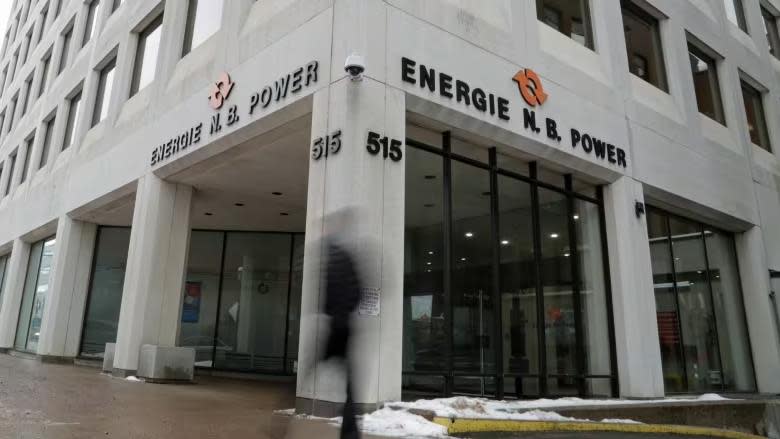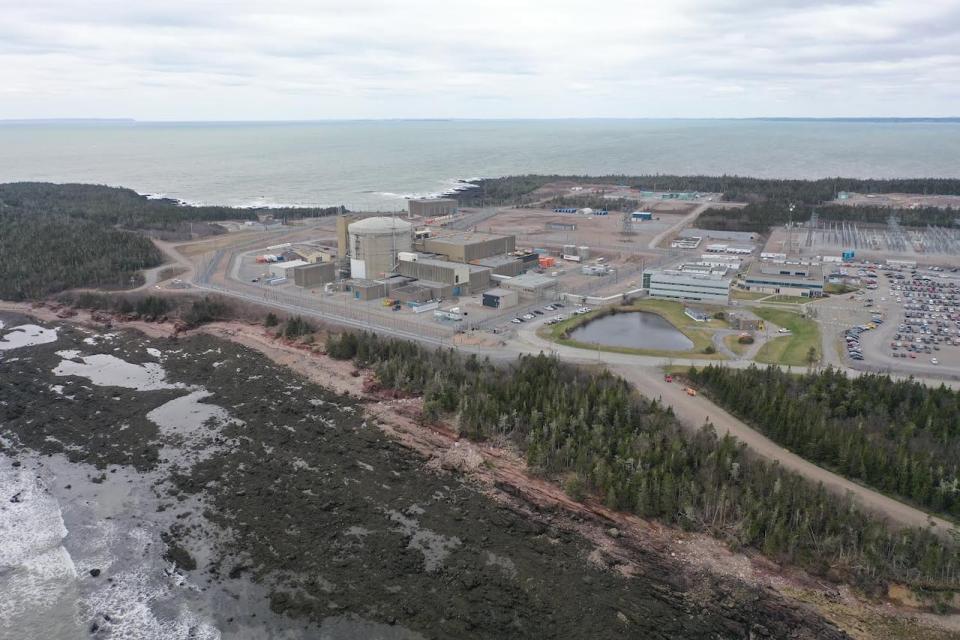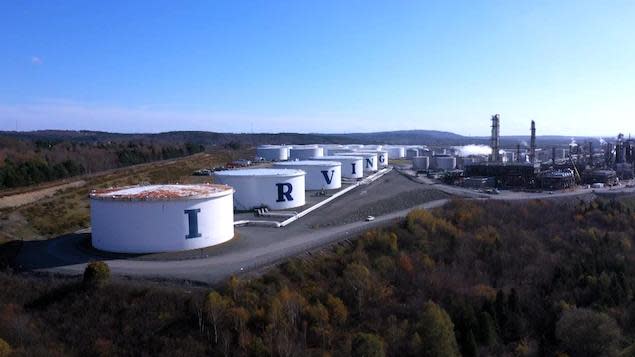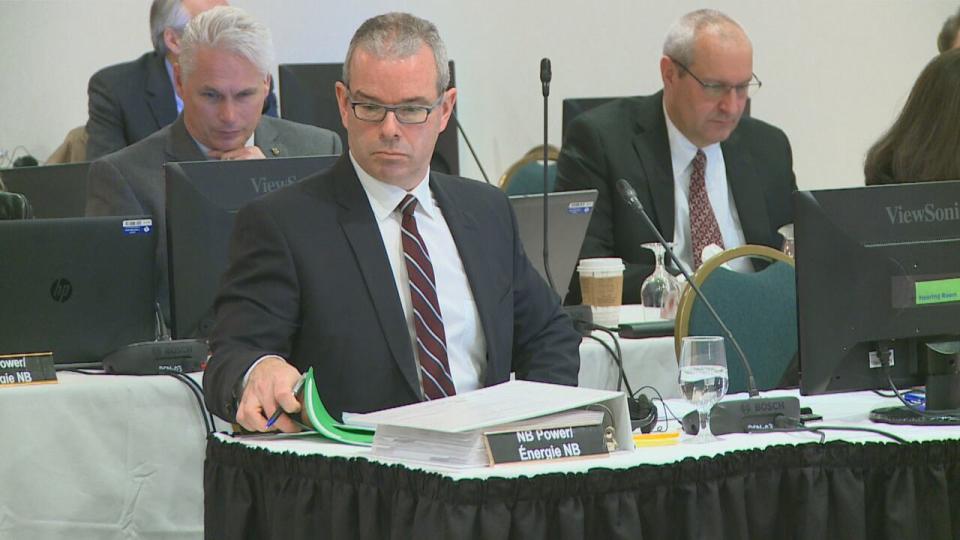Province not obliged to pay for delayed N.B. Power rate increase it helped cause

More than $75 million in fees, taxes and other charges collected annually from N.B. Power by the New Brunswick government could be adjusted to compensate the utility for a delay in this year's rate increase, if it occurs, but the province's public intervener says that is a solution only the government itself can decide on.
"In terms of a break from the government, that has to come from the government," said Alain Chiasson in an interview this week.
New Brunswick imposes a number of levies on N.B. Power annually including, in this coming year, utility taxes of $25 million, right-of-way taxes of $1 million and, in conjunction with local governments, municipal and provincial property taxes of $24 million.
In addition, the province charges an annual fee for guaranteeing N.B. Power's debt that is equal to $1 for every $154 the utility owes. With N.B. Power's debt now above $5.3 billion, that is an annual charge of $35 million. Interest costs on the debt are a separate expense for the utility.
The province also requires N.B. Power to pay for mandated government policies, such as subsidizing rates for pulp and paper mills at a cost of $12.6 million.
The sum of those charges provides significant financial room for the province to help the utility deal with $32.6 million in costs it is worried about facing, after it submitted this year's rate increase request to the New Brunswick Energy and Utilities Board 72 days late.

N.B. Power has had to pay New Brunswick more than $570 million in fees over the last 20 years to guarantee debt it took on for projects like the refurbishment of the Point Lepreau nuclear generating station. The fee is 30 per cent higher than Quebec charges its utility. (Shane Fowler/CBC)
Chiasson said the provincial government played a central role in why the rate filing was late but nothing obliges it pay for that if N.B. Power is penalized financially.
"That's a decision that the government will have to make — how much money they pull out of the utility and how much of a break they want to give them on property taxes, or any other taxes N.B. Power pays right now," said Chiasson.
N.B. Power has applied for a 9.25 per cent rate increase that it says it needs to begin on April 1 to meet long range financial targets set for it by the province.
However, the rate increase request, which was due on Oct. 4, wasn't submitted until Dec. 15 because of last minute changes the province made to those targets.
That has delayed a full rate hearing by the New Brunswick Energy and Utilities Board until mid-May
To deal with that, the utility has applied for a special interim rate increase to take effect on April 1.
N.B. Power argues it can rebate any excess money it collects from customers if the rate increase is eventually found to be too high.
Otherwise it says it will lose up to $32.6 million in critical new revenues if higher rates are delayed until July 1. It believes that is a likely date after a May hearing is concluded and a decision by the EUB is rendered sometime in June.

Irving Oil's crude-oil tank farm at Mispec Point, known as Canaport, has been exempt from paying provincial property taxes for 43 years. Several New Brunswick industrial properties deemed important to economic development enjoy similar tax treatment. (Mike Heenan/CBC)
"Such a delay in implementation of rates will have a deleterious impact on NB Power," utility lawyer John Furey wrote in a motion applying for the special April 1 increase.
Chiasson is opposing an interim increase.He notified the EUB in writing last week that he will argue N.B. Power and the New Brunswick government are jointly responsible for the rate application being submitted 72 days late and the consequences of that belong to them.
"The delay in filing the [general rate application] was self inflicted," Chiasson wrote in his response to the N.B. Power application.
"The public intervener requests that the Applicant's motion be denied on the grounds the interim order is not in the public interest."
However, Chiasson said there is nothing preventing the province from taking financial responsibility for what happened, rather than utility, if that's something it decides to do.
The New Brunswick government already exempts many industrial properties from paying provincial property taxes, including petroleum infrastructure belonging to Irving Oil Ltd., railway tracks and right of ways owned by both J.D. Irving Ltd. and CN Rail and the entire LNG facility belonging to Repsol.

N.B. Power lawyer John Furey at a 2022 Energy and Utilities Board hearing. Furey has applied to the board for an interim rate increase of 9.25 per cent to take effect on April 1. A full hearing cannot be held until May because the utility was 72 days late making its application. (Graham Thompson/CBC)
Even the controversial Saint John metal shredding facility owned by American Iron and Metal Ltd. is exempt from provincial property taxes, a benefit the province could extend to N.B. Power facilities if it chooses.
Alternatively, N.B. Power's debt guarantee fee, which is set 30 per cent higher than a similar fee charged to Hydro Quebec by its provincial government, could be adjusted.
The provincial government has not said it would consider lowering amounts it charges N.B. Power to make up for a delayed rate increase but last week New Brunswick's Progressive Conservative Party said it supported a rate increase delay until July.
"Who would you rather see get the $32.6M? NB Power? Or NB Families?" the party posted on its social media platforms.
The EUB has scheduled a meeting for March 1 to hear arguments on whether or not to grant an interim increase for April.


